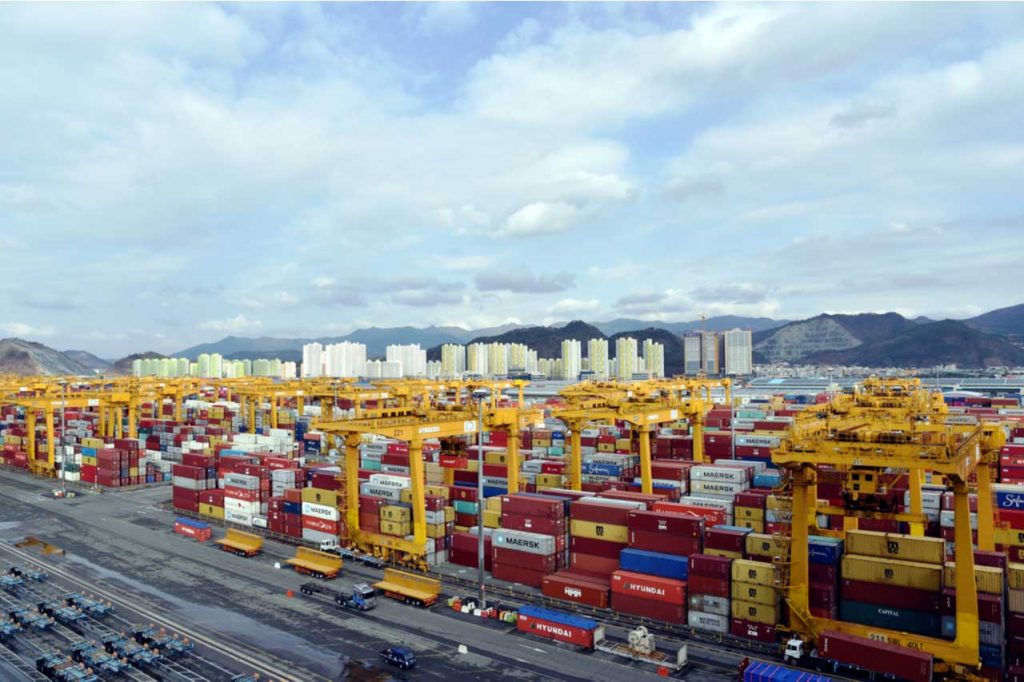
The U.S. in 2019 shipped 192,000 short tons of mixed paper to South Korea. | Mariusz Bugno/Shutterstock
A large buyer of U.S. scrap paper and plastic is planning measures to reduce imports and increase domestic recycling of those materials.
The South Korean government recently announced its plans to restrict mixed paper and PET bottle imports, although some specifics of the policy changes are still in the works.
Contaminated mixed paper draws focus
On Feb. 17, the country’s Ministry of Environment published an announcement (in Korean) describing a general policy to reduce “waste paper” imports. The ministry has not yet published a translated version of the document; an online translation describes measures such as “full inspection” of imports and unspecified “restrictions.”
Adina Renee Adler, assistant vice president of international affairs for the Institute of Scrap Recycling Industries (ISRI), learned that the South Korean government has concerns with the level of contamination in mixed-paper loads coming into the country.
“The announcement was made with two days’ notice, which created problems for exporters that already had shipments on the water,” she said.
Recovered fiber research firm RISI reviewed a letter from the South Korean government to domestic paper mills describing the upcoming restrictions. RISI (subscription required) reported all imports of recovered paper would be inspected beginning Feb. 21, although sources told RISI the policy was still “pending” by Feb. 28.
RISI also reported the government was considering a 0.5% contamination limit on mixed-paper imports but that the figure has since been revised to 3%.
The U.S. in 2019 shipped 1.1 million short tons of all recovered fiber grades, including 192,000 short tons of mixed paper, to South Korea, according to U.S. export figures. That made South Korea the fourth largest importer of U.S. mixed paper for the year, behind India (1.1 million short tons), Canada (270,000) and Indonesia (210,000).
According to the South Korean government release, the country imported 1.6 million short tons of “waste paper” in 2019.
India, the largest buyer of U.S. mixed paper, recently enacted new policies heavily restricting imports of that grade.
PET bottle import ban
In a Feb. 5 English language release, the environment ministry said it will improve domestic recycling of plastic bottles by collecting them separately from other recyclables. The release did not specify which resins would be targeted by this policy, but the announcement suggests the policy would cover PET bottles.
Korean manufacturers use recycled PET to make textiles for clothing, according to the announcement, but domestic recycled plastic is difficult to use “due to the debris mixed in during disposal and collection processes.”
“We will stop the import of used plastic bottles by increasing the quality of recycling processes of the bottles in Korea,” stated Lee Young-gi, director general of the Resources Circulation Bureau of the Ministry of Environment, in a statement.
According to U.S. trade data, U.S. exporters shipped 9.7 million pounds of recycled PET to South Korea last year, accounting for about 15% of all U.S. scrap plastic exports to the country. The Korea Times reported that the bulk of South Korean PET imports come from Japan.
The South Korean government has a goal to collect 100,000 tons of plastic bottles per year beginning in 2022. The separate collection system, which has yet to be developed, will be rolled out to the multi-family sector in the second half of 2020 and to all single-family houses in 2021.
More stories about exports
- West Coast ports expect slowdown in container shipments
- Malaysia fully halting US plastic scrap imports
- Some tariffs suspended, metal duties coming this week